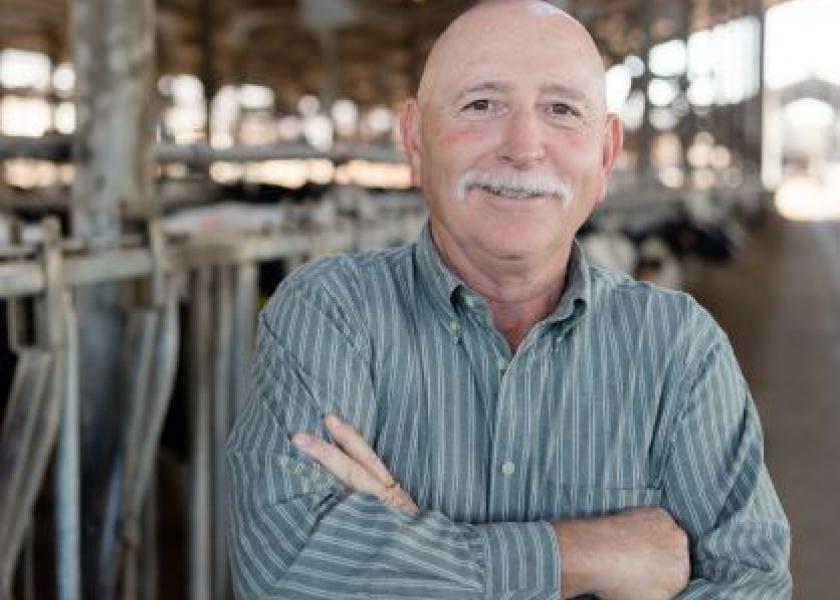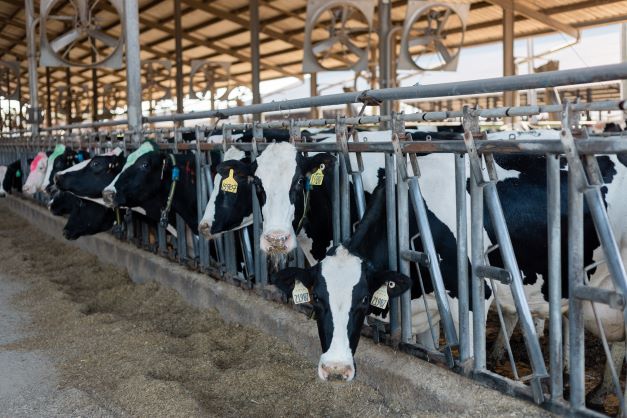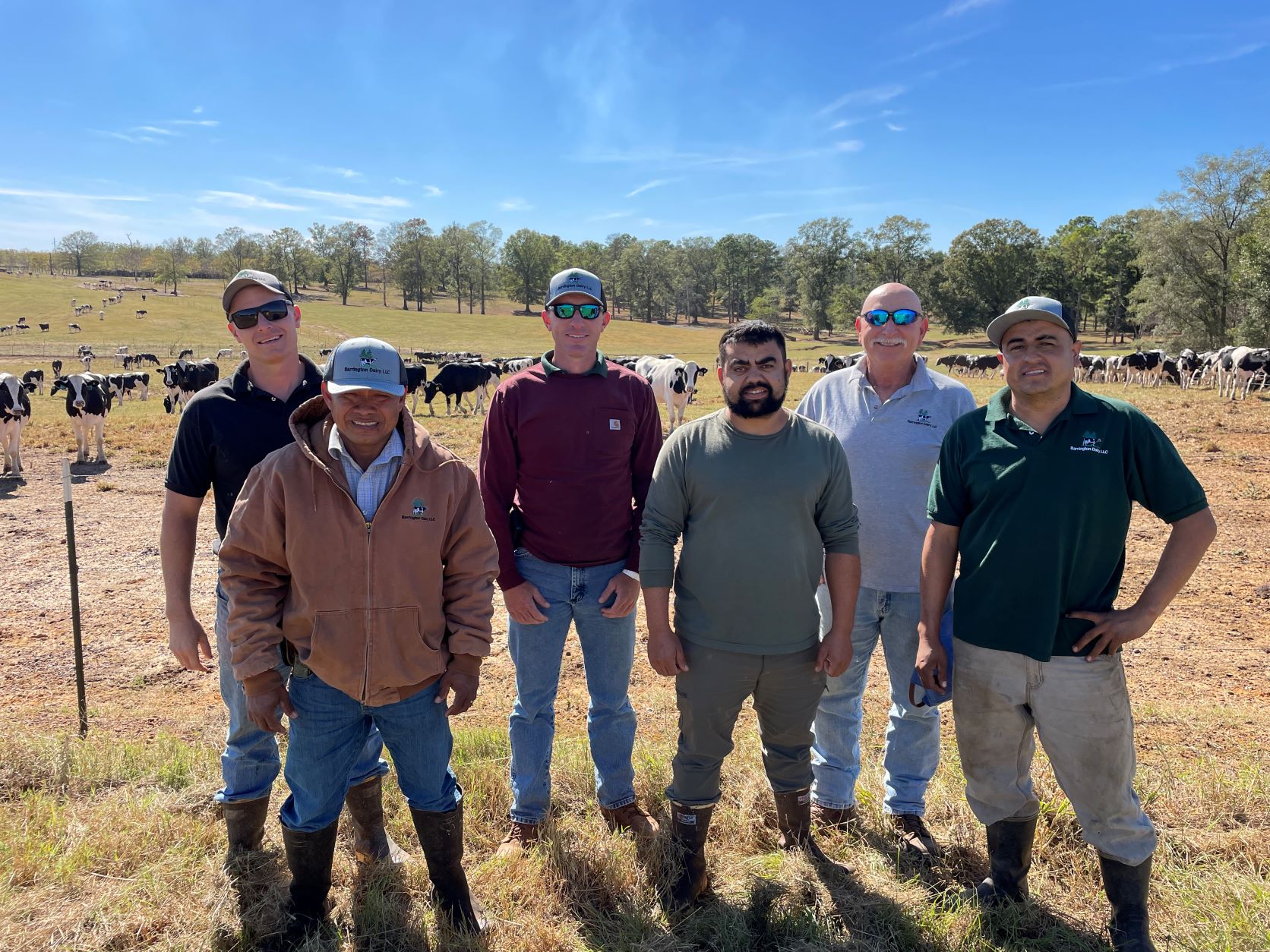The Path Forward

Talk with a farmer. Ask about their succession plan. Often, there isn’t a cookie-cutter answer.
While passing the family farm to a family member is ideal, sometimes that isn’t an option or the best path forward.
Head to Georgia and you’ll find a farmer with a New York accent and no dairy in his DNA. Nevertheless, Pete Gelber is a dairy farmer who offers a unique, firsthand perspective on succession planning.
Gelber’s story is not only admirable but also rare. His work ethic and joyous attitude helped him become a partner on a Southeastern dairy farm in 1997.
Through the years, Gelber has found similar ‘diamonds in the rough’ employees, promoted them and eventually made them partners, illustrating a solid, non-family succession plan is possible.
Bronx Roots
Gelber was raised in the Bronx more than a half-century ago. The youngest of five, his parents had the foresight to get their children out of the city every summer. All the kids had the opportunity to work on a 30-cow dairy.
When school was in session Gelber always worked in the Bronx as a paper boy, in fast food or in a department store. From a young age he knew how to work hard and how to earn a buck.
Gelber made his way to Cornell, and it was during his time in Ithaca, a professor told him a small dairy was economically unrealistic, with profits hovering around $300 a cow. Gelber began reconsidering his dream of owning his own dairy. Doing simple math, Gelber had his ‘ah-ha moment’ and knew a larger-scale, 500-cow dairy would be more profitable and his dream of owning a dairy farm deepened.
South Bound
After struggling on a rented side-hill farm, Gelber found a job working for Ron St. John as a herdsman on his Batavia, N.Y. dairy. Soon after, St. John moved south to Florida, and Gelber followed.
According to Gelber, he got promoted one disaster at a time.
“I don’t know if I was that good or if St. John just didn’t have any better options, but he treated me like a little brother,” he says. “We were very compatible.”
Couple that with their similar work habits, life balance, money management and economic outlook, and it made perfect sense the duo’s future would continue to bode well.
In the early 1990s, St. John asked Gelber if he would consider partnering with him in a couple of bankrupt dairies in Georgia. Gelber eagerly agreed. The Georgia operation was within hours of Atlanta and Orlando and provided strong markets for fluid milk.
At that time, Gelber owned 250 head of cattle and exchanged those for 1% phantom stock per year for 10 years in the Georgia operation. Phantom stock is what Gelber describes as a ‘kiss and a promise.’
“Basically, I was not an owner, not liable, but got 1% of the profit of the farm,” he says.
St. John knew Gelber was more than capable of helping run Barrington Dairies in Georgia, and he quickly went from asking permission to begging for forgiveness to sending St. John a P&L statement every month.
“That’s kind of how it worked,” Gelber adds.
Barrington Dairies had around 5,000 cows when they purchased it and since has grown to 13,500.

Establishing Priorities
Regardless if a partnership involves family or non-family members, Gelber advices producers to make sure the business is viable in terms of profitability and cash flow first. Secondly, he says all partners must have the same morals.
“If you have reservations or ill feelings about someone, I don’t care how good or talented they are; it won’t work out,” he says. “When it came to how to treat people and our business approach, St. John and I were very similar.”
Gelber also says it is important to diminish the effects of taxes and debt when buying out partners.
“Reasonably inflate cattle and things that have good or neutral tax consequences, and deflate things that are taxed at full strength, such as land rent and forages,” he says. “But keep value in reason, and don’t push it to the limit or commit fraud.”
Gelber also says you must have a lot of trust with your business partners and emphasizes the importance of having business partners be true leaders on the operation.
Evolution of Transition
In 2007, Gelber’s son, Richard, graduated from Cornell and joined his father in Georgia to help run
the dairies. Gelber says he is now
a partner.
Richard focuses on the crop side of the business and manages Barrington Dairy’s 6,000-plus crop acres. He is now a 25% partner in the business and is a 50% partner in the land.
In 2013, St. John was ready to sell out, and the agreement was established for Gelber to buy the cattle and the business and rent the land from the original partnership.
“Six years later we bought the land,” he says.
Two years ago, herd manager Andre Coen, who has the same values as St. John and Gelber, became a 10% profit partner in the business. A year ago, Gelber also approached three employees, who have worked for him for more than 20 years, with a 2% phantom stock.
Gelber says those employees he has pulled into junior partnership bring so much to his dairy’s toolbox.
“We can’t run without these guys,” he says.
Ruben Lopez oversees feeding and the shop and, according to Gelber, is one heck of a mechanic.
“Everything is running all the time because of him,” Gelber says.
Chuy Segura oversees the youngstock, and Gelber says he is a tremendous people person.
“He is the heart and soul of the dairy,” Gelber says. “He makes coming to work fun.”
Amadeo De Paz runs the milking parlors and recruits and hires employees.
These three employees, who are now partners of Barrington Dairies, also have a retirement policy.
“They’re really well cared for,” Gelber says.

Gelber has always been a culture warrior. His son can attest to that.
“My dad’s biggest strength and worst flaw is that he is a believer in people,” Richard says.
Gelber says you’ll have some guys who are better at making the rubber meet the road and some people are better at forming relationships. You need both to run a dairy, Gelber says.
As these employees have moved up the ladder, Gelber says owners need to be OK with taking more of a back-seat role to allow junior partners to take on more.
“I’d rather play second base for a major league team than play shortstop in the minor leagues,” he says.
Gelber also says as you age, you must be willing to look in the mirror and ask yourself the tough questions, including what you want to happen to your farm and what’s in the best interest of all involved.
“Nobody escapes old age, but businesses can. We have some trusts in place; we’re taking care of taxes and preserving wealth,” Gelber says. “Newly purchased land, is put into a new LLC, so depending on who has ownership at the time, they get their fair share. I’m not going to cut my young partners out on something that’s worth money at the end of the day.”







